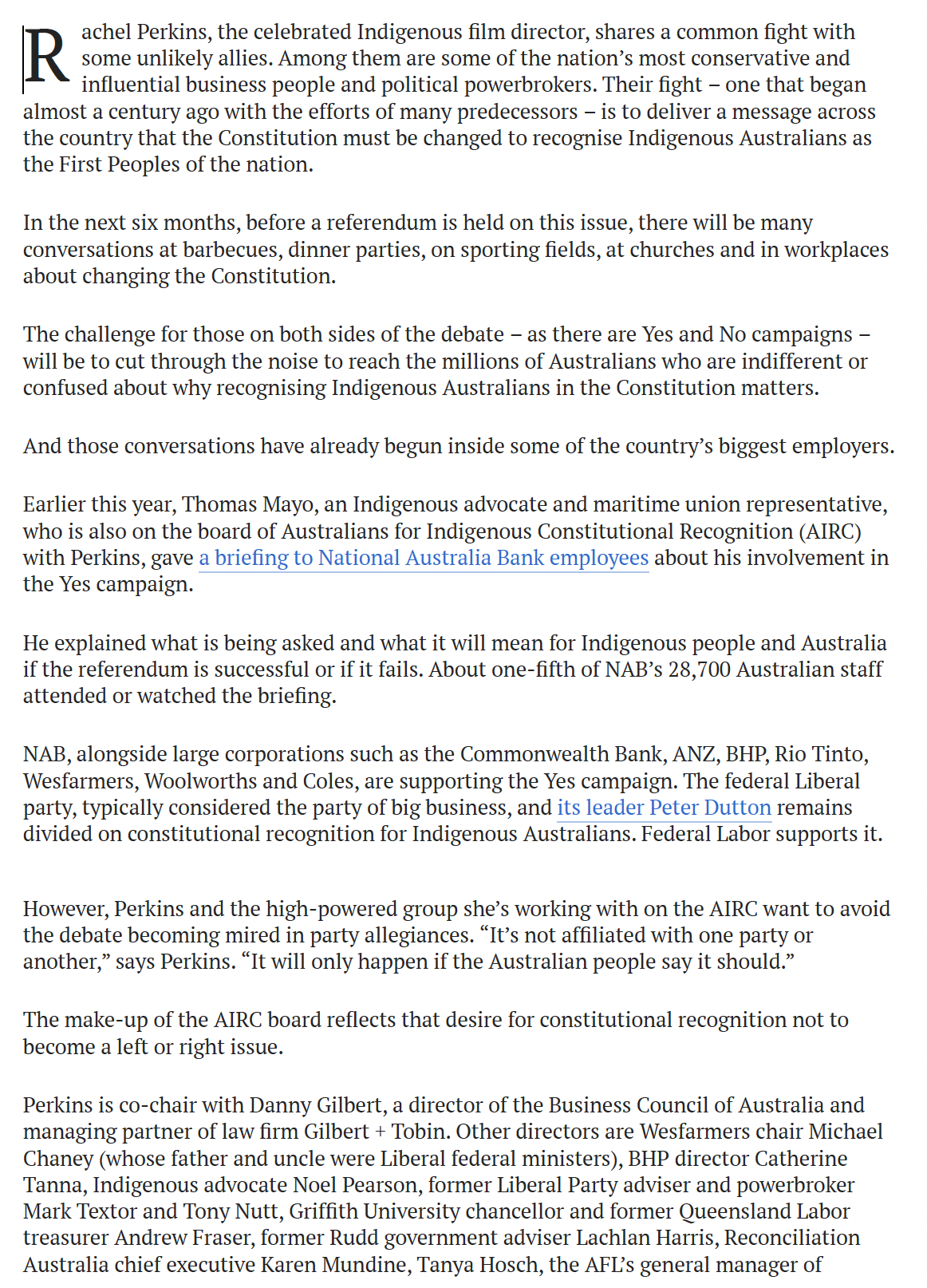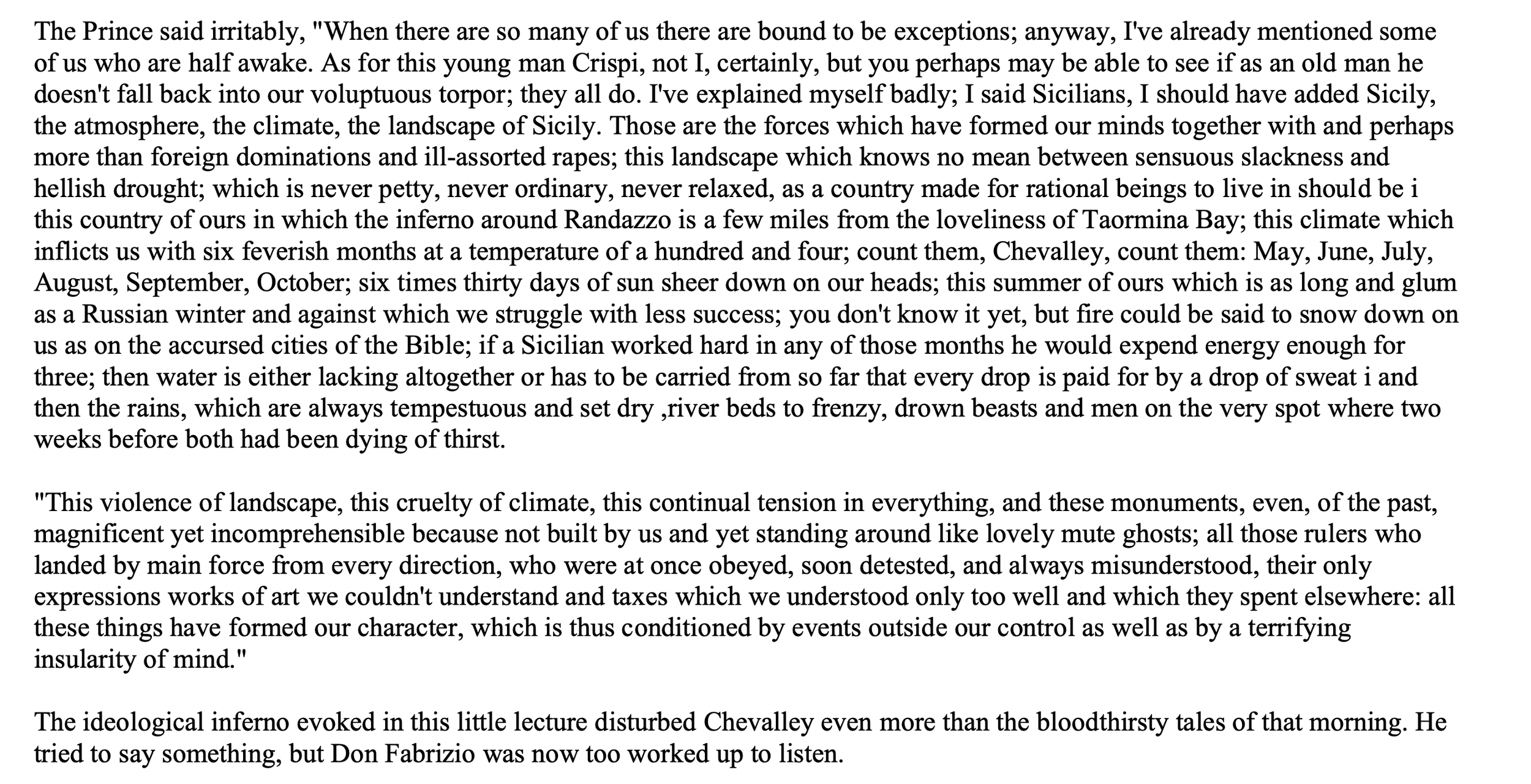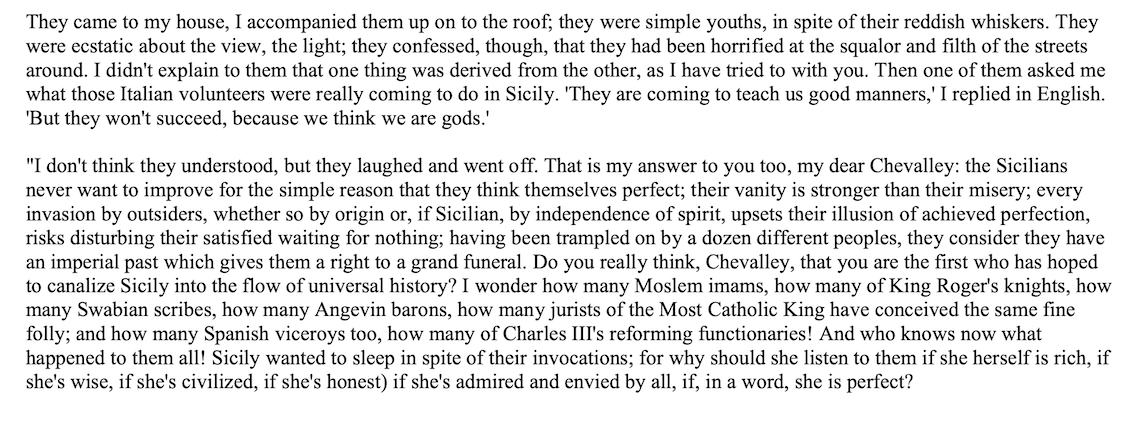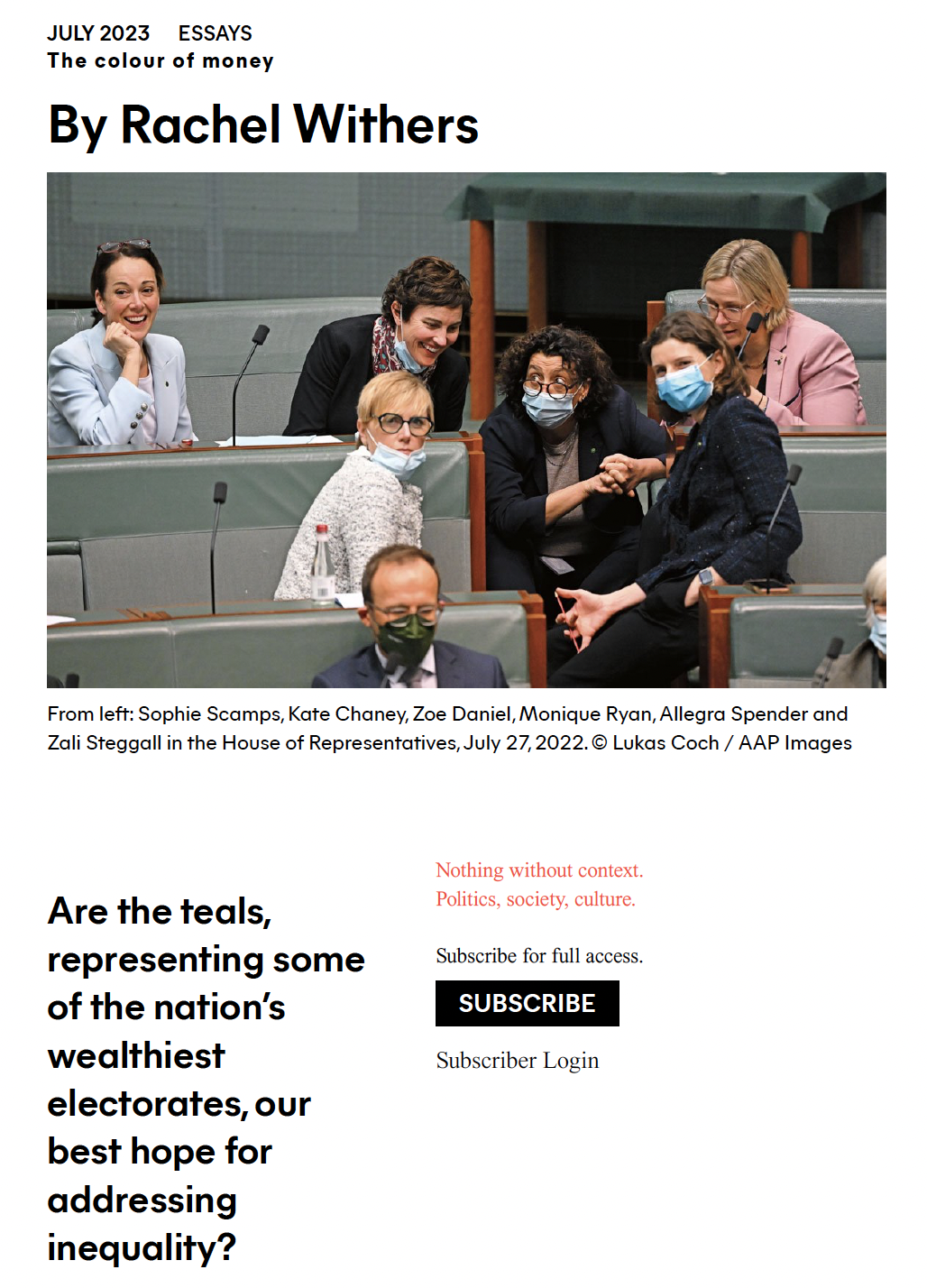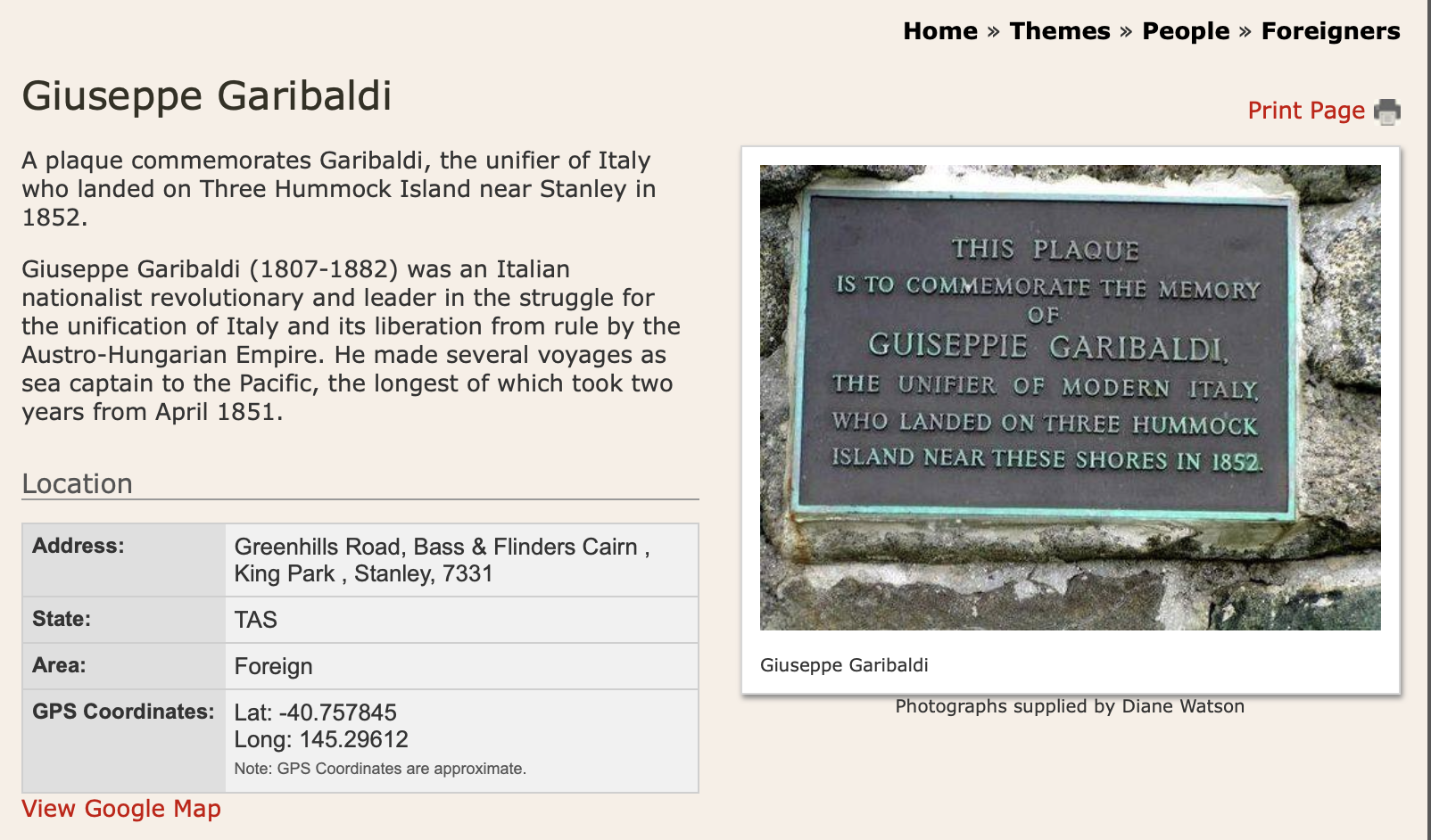Time to Dust Off Your Copy of The Leopard
In 2020 UK author and commentator, Douglas Murray penned an article in Unherd in which he told us,
“I first heard of Vasily Grossman’s, Life and Fate, from the late Persian writer, Shusha Guppy. She had read everything, in many different languages.
She had an especially high literary bar when it came to novels, and a deep intolerance of those that ran over a few hundred pages (something she generally saw, correctly, as a demonstration of authorial ill-discipline).
“There are only two truly great novels of the 20th century,” she once told me assuredly. “Giuseppe di Lampedusa’s The Leopard (obviously) and Vasily Grossman’s Life and Fate“. I had read Lampedusa and agreed, but it took me almost 15 years to get beyond the first few pages of Life and Fate.
Yet, in some way, great books wait for you, biding their time until the moment you are ready for them. And when I finally took up Grossman, late last year, I knew that I needed to commit a couple of weeks to finally climbing this literary mountain. It took a good deal longer …” - Douglas Murray
In my own case, not being a great fiction reader, a copy of Giuseppe Tomasi di Lampedusa’s, The Leopard, had lived on my own book shelf for some 15 years, opened and started two or three times, but never finished, despite it being only 200-odd pages long.
Yet, as Murray advises, “in some way, great books wait for you, biding their time until the moment you are ready for them.”
In the year of the Voice Referendum, I found that now was such a time for The Leopard.
Giuseppe Tomasi di Lampedusa’s, The Leopard, might be focused on the great social change occurring in Sicily at the time of Garibaldi’s unification of Italy (Campaign of 1860) but, having patiently sat on many bookshelves around Australia for many years, it is now time for all of us to dust off our copy and read it.
Tomasi’s writing incites us all to think deeply about what a successful YES in the Voice Referendum might mean to the social order that we have taken for granted within Australia.
This social order, built up over two centuries, is justifiably characterised as a liberal, democratic and egalitarian society of working peoples, where everyone can have a ‘fair go.’
However, over the past ten-years or so, it is easy to feel that something is not quite right with Australia.
Today it feels that inequality is increasing, not only in terms of wealth, but also in terms of influence, or power, or even one’s own destiny - it feels harder to be aspirational and in control of one’s own life. And the Voice proposal is only the latest manifestation of this push towards a new social order, with its blatant attempt by a small coterie of activists to insert themselves into Australia’s power-sharing document, our Constitution.
As one reads The Leopard and the political maneuverings of its characters - the failing old aristocracy, the rising politicians and their new rising aristocratic allies, the shrewd and ruthless businessmen and traders, the ignorant, seemingly helpless peasants - one is reminded of the political games of our Australian elites and the activists, with their proposed constitutional, Aboriginal aristocracy backed by big business, the Leftist media and sundry political figures.
The subtle changes being imposed by this ‘new social order’ are all around us.
No longer do we open our meetings with a respectful and egalitarian, “Distinguished guests, ladies and gentlemen …”, but rather we have wound back the clock to an Indigenous version of the temultuous Sicilian society of 1860 with, “I acknowledge the traditional Custodians of this land and pay my respects to Elders past, present and emerging.”
The Prince would immediately recognise what was being said here - He gets his deferential acknowledgment as the traditional landed aristocrat, but he needs to move out of the way for the hustling, business Elders of the here and now, and the young, emerging activists as they create their future Aboriginal aristocratic class.
And the audience likewise is just treated as dumb peasants or workers, expected to do as they are told while the elites build a new social order, with them on top of course, ‘advising’ (telling?) directly to the ‘executive’ of our formerly democratic government.
Excerpts from Business titans get behind an Indigenous Voice to parliament, The SMH, by Anne Hyland, 6 MARCH 2023. Full article here.
One of the most famous lines in The Leopard is,
“If we want things to stay as they are, things will have to change.”
This is spoken by the youth, Tancredi Falconeri, the nephew of the Prince of Salina, when he comes to announce his departure to the Prince [Tancredi is going to fight with the revolutionary forces that aim to ‘seize power’ for their new world order - sound familiar?].
The Leopard, Vintage Books, 2007, p19 [print errors in original]
“If we want things to stay as they are, things will have to change” - The Leopard.
As the PM earnestly tells us, “It’s a modest request and a generous offer” which, a thoughtful Leopard reader might understand to mean, “just support a Voice in the Constitution and business will continue as before.”
Cartoon in the AFR July 2023 The advertisement comes after Wesfarmers – which owns major retailers Bunnings, Kmart and Target – gave the ‘Yes’ campaign a $2 million donation last week, following in the footsteps of mining giants BHP and Rio Tinto which also gave monetary gifts to show their support.
Voice to parliament: Jews ‘recognise Indigenous ties to land’, says Mark Leibler - The Australian 21 Aug 2023
“Much would happen, but all would be play-acting … This was a country of arrangements…” -The Leopard.
It’s a modest change - put the Yes23 on Qantas planes and provide free-travel to the New Aristocracy and ‘things will stay as they are’ - the air routes will be protected from Qatar.
Former ACCC bosses criticise federal government for blocking Qatar Airways flight requests to protect Qantas (ABC News)
Closing the Gap
“They won’t succeed because we think we are gods.” - The Leopard
Australians of goodwill are constantly shaking their heads as the media continue to report on the frequent apparent failures in social order in some remote Aboriginal communities - reports of serious domestic violence and sexual assaults against women and children, plus evidence of high drug and alcohol use, and high rates of incarceration and self-harm.
Mainstream Australians, who can manage logical, stable lives in modern Australia for themselves and their families, just don’t understand how we can spend $30B per year, but have such poor outcomes to show for it in that last 20%, or 100,000, of our Aboriginal fellow citizens. Why can’t all Aboriginal people in remote communities just get their act together?
Maybe The Leopard has some guidance as to why the taxpayer and these 100,000 disadvantaged Aboriginal people find themselves in this position - was 19th century Sicily a shadow-play of 21st century remote Aboriginal Australia?
Was the Prince’s town of “Donnafugata” the ‘sister-city’ of Yuendumu?
Tomasi, in the following pages of The Leopard, gets to the heart of the Sicilian psyche as the characters discuss the great social upheaval and realignments underway [see Note at article end for a comment on Sicilian and Aboriginal communities].
His characterisation of these Sicilians is timeless and borderless to the perceptive Australian reader.
The ‘red-skinned peasant’ boy who, with the right connections, will promote himself as, and ‘sincerely believe himself’ to be, a proud baroni and ‘descendant of a grand duke of Muscovy’ within the new social order of 1860 Sicily, is an uncanny description of the hustling, proud [insert tribal name here] Aboriginal box-ticker of the Voice campaign.
In another passage, as Tomasi puts the following words into the Prince’s mind, an Australian reader in 2023 realises that he has unwittingly anticipated the actions of our very own Voice elites,
"I understand now; you don't want to destroy us, who are your 'fathers.' You just want to take our places. Gently, nicely, putting a few thousand ducats in your pockets meanwhile.
And for those of us who are closely watch the Voice debate, it is as if Tomasi is here now working on the Yes23 campaign, when he has Chevalley, the Piedmontese and representative of the only liberal State in Italy, trying to convince the Prince to join Italy’s new constitutional Senate [eg. The Voice],
"But, Prince, the Senate is the High Chamber of the Kingdom! In it the flower of Italy's politicians, chosen by the wisdom of the Sovereign, will examine, discuss, approve, or disapprove the laws proposed by the Government for the progress of the country; it functions at the same time as spur and as brake: it incites good actions and prevents bad ones. When you have accepted a seat in it, you will represent Sicily on an equality with the other elected Deputies, you will make us hear the voice of this lovely country which is only now coming into sight of the modern world, with so many wounds to heal, so many just desires to be granted."
Look at the terminology and the arguments for persuasion used to convince the Prince to say “Yes” in 1860, and how closely they match the ‘vibe’ of what we are being asked to agree to in 2023.
These are but three examples of the literary greatness of Tomasi’s The Leopard - its ability to reach across time and place to help a simple reader illuminate, and thus better understand, a complex life choice that he himself has to deal with.
As we would say colloquially in Australia, ‘different characters, but same old shit’.
[Note - Pietro Russo is an shrewd rising ‘businessman’, employed on the Prince’s estates, as his steward or manager; His Excellency is Don Fabrizio Corbera, Prince Salina; Chevalley di Monterzuolo, is a bureaucrat from Piedmont, who has been sent to convince the Prince to join the new Italian Senate; Ferrara, is the Prince’s accountant, Bendicò, is the family dog].
Excerpts from here online book
In summary, the “Socialist Gulags” that form the “homelands” that the Canberra bureaucrats call, “remote Aboriginal communities” will never be viable communities where no ‘gap’ exists in terms of educational, economic and health outcomes when compared to rest of mainstream Australia.
The Aboriginal activists and their city supporters are playing a cruel joke on all Australians and especially the kids in these remote communities, if they think that the Uluru Statement and the Voice with make one iota of difference to improving the lives of these people stuck out in the desert or tropical swamps, with their ‘voluptuous immobility.’
And so too with Sicily - to flourish, those downtrodden Sicilians who wanted to be, as the Prince says, ‘the exceptions’, had to escape the control of their oppressors - the dead weight of an entitled ‘Elder’ aristocracy and their Mafia henchmen and bullies [the Big bunga], the strictures of the Church [‘culture and traditional law], their clutching, self-pitying and humbugging families and lastly, but not least, the poor fertility and lack of jobs in their exhausted island.
And flee they did - to the north, the US and Australia - where they joined the modern world, assimilated, flourished and can now return to ‘country’ [Sicily] on their own terms to ‘connect with their culture’, but always with a return ticket back to their new lives far away.
Perhaps this is the model for those 100,000 Aborigines who are being used as pawns in the high-stakes, political games of Indigenous affairs being played out in Canberra - get your kids out of their dystopian surroundings, get them an education in town so they can then have a modern life with a good job and the money and freedom to visit “country & culture” as required, but always with an exit ticket back to town or city.
But then again, this advice often falls on deaf ears - most Aboriginal people in remote communities perhaps can’t, or won’t, embark on ‘familial self-improvement’, because they know that, “They won’t succeed because we think we are gods.” - The Leopard
Further Reading
The other big change occurring in Australia, that potentially is as disruptive to our social order and the distribution of wealth and power as the transition from the Kingdom of the two Sicilies to a unified Italy was to the characters in The Leopard, is our government’s response to ‘Climate Change.’
For better or worse, Federal Energy minister, Chris Bowen, might in fact turn out to be our own Garibaldi Down-Under, with his Teal expeditionary force, The Thousand
Note - Ed. - I concur - I’m an Aussie who married a Sicilian and lived with my non-English speaking parent’s-in-law in the Western suburbs of Melbourne for four years with three kids under the age 5. We had an extended Sicilian family of 80-odd relatives in Melbourne. We also lived in the home town of Ramacca in Sicily for a time with those remnants of the family who had not fled in the 1960s.
After a few brief visits to some Aboriginal remote communities and meeting some residents in ‘the socialist Gulag’, the Sicilian psyche all came flooding back - tight family ties, feuds, vendettas, sorcery, laughter, wit, theft, cheating, bitching, violence, dance and song, absolute craziness, slowness to make a decision, sellers remorse and a certainty in one’s position despite blatant evidence to the contrary, etc]
Hard to Believe Facts
Incredible as it may sound, Giuseppe Garibaldi, the great patriot and fighter for Italian independence, actually landed on Three Hummock Island, off the north-western tip of Tasmania, in December 1852. He was on his voyage back from South America to Italy. Source: here
Source: here




